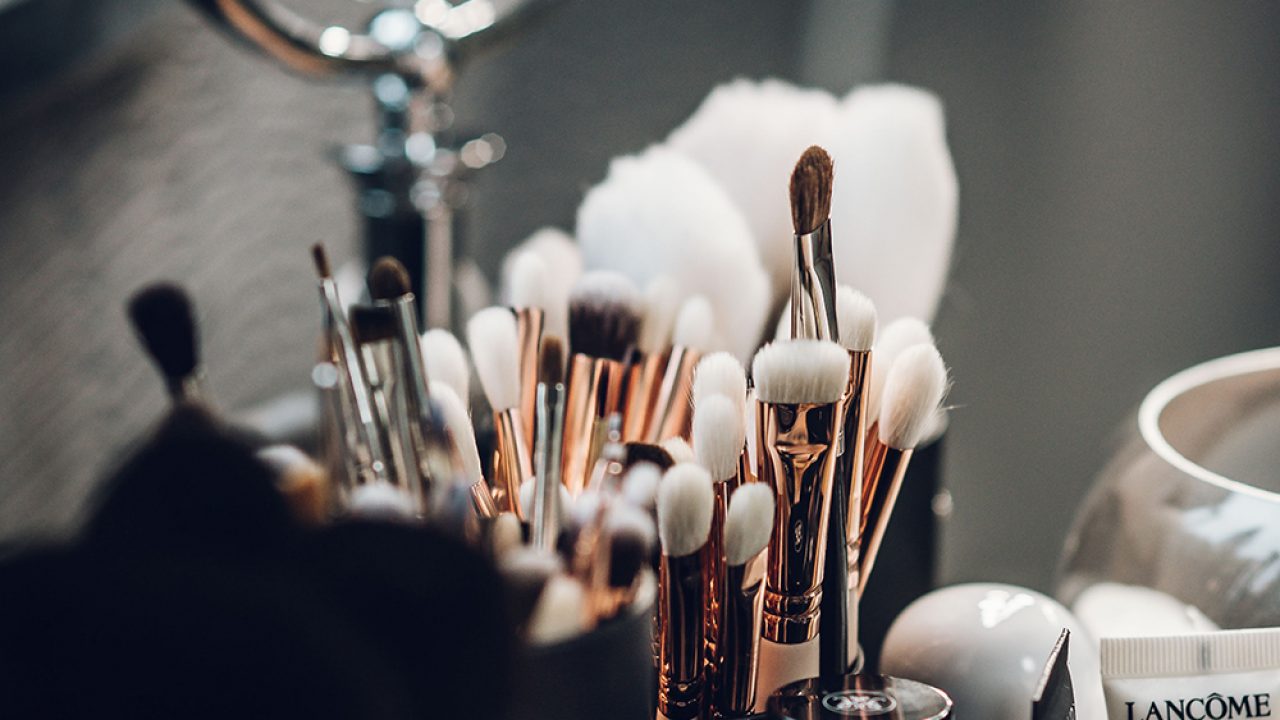
How often do you clean your makeup brushes? If the answer is never, or even just once in a while, you are not alone. A poll recently found that 61% of women clean their makeup brushes once a month, if at all.
READ NEXT: How to clean makeup brushes
If you do fall into this category, you may want to reconsider your habits. Yes cleaning makeup brushes is a chore, and yes you have to do them individually, but the combination of leftover makeup, skin cells, oils from your skin and whatever else might get onto your brush means your makeup tools are a hotbed for potential bacterial growth.
ARE GERMS LURKING IN YOUR MASCARA?
A study that looked at two brands of mascara used every day for three months found microbes in 36.4%. In particular, the researchers found bacteria including Staphylococcus epidermidis.
This is commonly found in humans and can cause diseases including pneumonia, and types of fungi. Of course, you can’t really clean your mascara wand, so make sure you change makeup regularly and get clued up on the expiration dates of different makeup types.
Beyond bacteria – and strains including Staphylococcus, Streptococcus, and E-coli have been found on makeup brushes – there could also be bugs living on them. According to Lynne Sanders, cosmetic scientist and founder of Cosmetics a La Carte, the remains of dead mites can sometimes be seen on makeup brushes under the microscope. Grim.
What’s more, if you’re spending a lot of money on makeup and moisturisers, especially if you have oily or spot-prone skin, and you’re not washing your makeup brushes then not only will these products not be working as effectively as they should be, you could be making your skin worse.
Using dirty makeup brushes doesn’t just cause cosmetic issues, it can also lead to disease.
“Cosmetic contamination leads to several types of infections that range in severity from mild to serious” according to a 2012 study by researchers at the Lahore College for Women University, in Pakistan.
READ NEXT: What’s living in your makeup bag?
The study looked at pathogens found in 100 different cosmetic tools, looking at Staphylococcus aureus, Pseudomonas aeruginosa, yeast and fungus.
“The rich texture of cosmetic creams are mainly due to moisture content, presence of essential minerals and growth factors, which provides a broad spectrum of inorganic and organic compounds and a suitable environment for the growth of microorganisms,” the authors said.
Out of the sponges and brushes sampled for the study, 100% of them were infected with Staphylococcus aureus. Every single one.
Staphylococcus aureus is commonly found, on around 30% of people’s skin and causes skin infections but it can also cause pneumonia, heart valve infections, and bone infections when skin infections develop.
READ NEXT: How to clean beauty blenders
On top of not cleaning their brushes properly, many women share makeup and applicators with friends and their family. This increases their chances of facial infection, according to the study.
“By adapting the proper preventive precautions such as sterilisation and proper washing of these tools the microbial contamination from one person to another can be controlled” the authors added.
MORE LIKE THIS

Abigail is a leading science journalist writing about space, sustainability, technology and culture. She is author of The Art of Urban Astronomy, a must-have guide to the night sky that guides you through the seasons and learn about the brightest stars and constellations, the myths and legends of astronomy and how to identify star clusters and galaxies.
